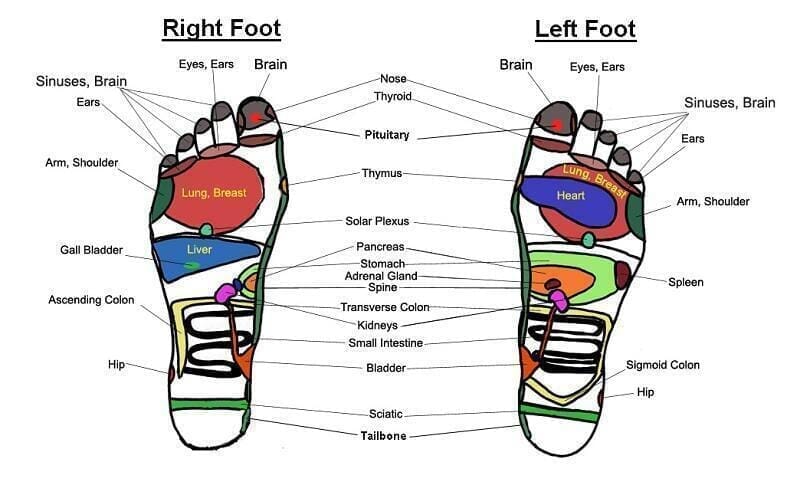When The Bacteria in Your Body is Off Balance | Herbal Goodness
Your body is home to more than 100 trillion bacteria.
Your skin, for instance is teeming with an invisible motley of bacteria. Your eyebrows are a healthy pasture for herds of mites, with fungi laying claim to the real estate between your toes. And let’s not even talk about the mouth, a famous microbial oasis.
These aside, what really makes us tick is the 500 or so species of bacteria residing in our GI (gastrointestinal) tract.
Gut Bacteria: The Good vs. The Bad
Gut bacteria is grouped into good bacteria and bad bacteria on a ratio that needs to balance the scales; otherwise, it’s trouble in paradise. According to research, the ideal balance needs to be 80% good bacteria and 20% bad bacteria (sort of like the 80/20 rule).
Good bacteria, most of which resides in your colon, spend most of their days fighting their bad kin, rummaging through undigested leftovers and micromanaging calories.
But good bacteria itself is prone to destruction, the common causes of which include a poor diet, medication, stress and even lack of sleep.
Medication like antibiotics can be used to treat bad bacteria, but their downside is that they never choose sides and will kill off the good bacteria as well. And when their numbers dwindle, the scales tip in favor of the bad guys, and there is nothing enjoyable about it.
The Negative Effects of Bacteria Imbalance
A small bacteria imbalance results to issues like stomach gas, bloating, constipation, diarrhea and stomach cramps.
If the imbalance is not addressed on time, this can ultimately lead to more serious complications, including irritable bowel syndrome and inflammatory bowel disease. But the consequences of a bacteria imbalance are not restricted to your digestive system only.
An unhealthy gut can lead to skin conditions such as acne, eczema, rosacea and psoriasis. It could also be responsible for autoimmune diseases like rheumatoid arthritis and Hashimoto's disease.
Chronic stress has also been linked to harmful bacteria in your gut, and that inexplicable anxiety and depression you may be battling with could be an internal stick up by bad bacteria.
A bacteria imbalance can also lead to other mental issues like brain fog, OCD and even autism.
Related: What’s the Deal with Graviola?
Treating Bacteria Imbalance
On the upside, there are certain steps you can take to reverse your bacteria imbalance.
This can help reverse conditions that have affected you for years and keep any potential medical conditions at bay.
-
Avoid Toxins
One of the first things you need to do is avoid anything that may stifle good bacteria while encouraging bad bacteria to flourish.
This involves steering clear of toxic foods like grains, sugars (fructose included), conventional grain-fed dairy and unhealthy oils.
What’s also good to steer clear of are modern toxins: antibiotics (as much as possible); non-steroidal anti-inflammatory drugs (NSAID) like Ibuprofen and Advil, and also pesticides.
-
Consume Fermented Foods
Fermented foods don’t have a palatable ring to them, but as counterintuitive as it may sound, fermented foods, a constant feature in our ancestors’ diet, do encourage good bacteria to thrive.
Think non-pasteurized yoghurt, cheese and kefir, pickles, sauerkraut, miso or natto, kimchi and lacto-fermented fruits and vegetables.
Resist the urge to introduce too many fermented foods in your diet too quickly as this will only be counterproductive to what you are trying to achieve.
-
Probiotic Supplements could help
When you find your bad bacteria running amok, health practitioners encourage taking probiotics. These contain live cultures of bacteria akin to the good kind residing in your colon.
Sources of probiotics can be foods such as mentioned in our previous point, but probiotics are also available in supplement form. These help in correcting the bacteria imbalance in your body, and consequently, correct your digestive tract in the process.
A few guidelines when choosing effective probiotics:
- Make sure they are potent (at least 8 billion/dose)
- Avoid low-cost products
- Go for products that contain Bifidobacterium and Lactobacillus
- Buy from reputable brands
-
Manage your Stress
One of the most effective treatments for bacteria imbalance, apart from changing your diet, is to prioritize stress management.
There is no blanket solution for this; the secret lies in picking something you enjoy and abiding by it.
While you are at it, make sure to get plenty of sleep as this helps bring down your cortisol levels which can be harmful to your gut.
Last Word
The body is an incredible system of nature. It warns you of any impending problems well before they set in.
If you find yourself experiencing symptoms like bloating and indigestion, your body is trying to signal something. Take heed of it.
By following this advice, you can reel in any bacteria that may be out of whack, restoring your bacteria balance to optimal levels.
Suggested Read:
I Fight Toxins Naturally with Nature's Own-Superfruit!










